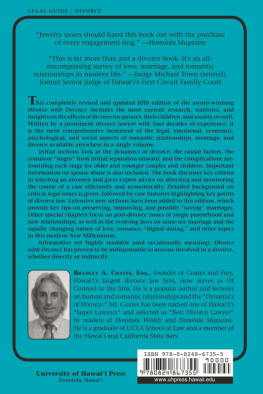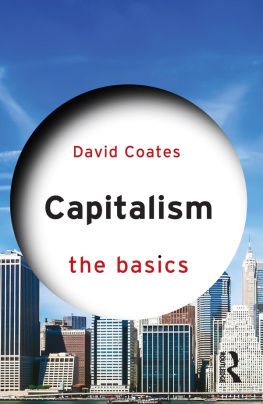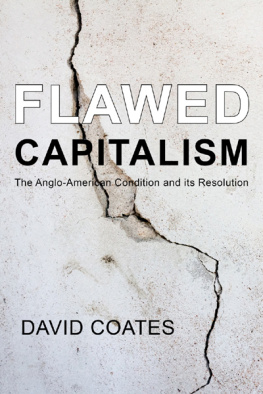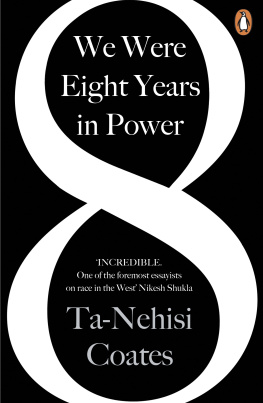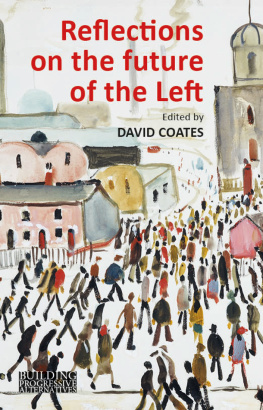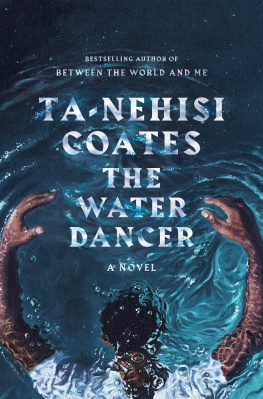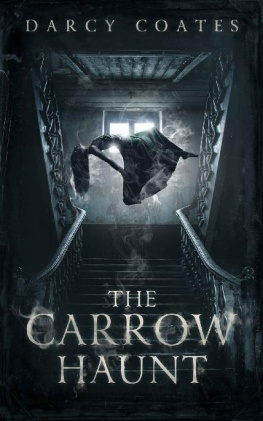Coates - We Were Eight Years in Power
Here you can read online Coates - We Were Eight Years in Power full text of the book (entire story) in english for free. Download pdf and epub, get meaning, cover and reviews about this ebook. year: 2017, publisher: One World, genre: Politics. Description of the work, (preface) as well as reviews are available. Best literature library LitArk.com created for fans of good reading and offers a wide selection of genres:
Romance novel
Science fiction
Adventure
Detective
Science
History
Home and family
Prose
Art
Politics
Computer
Non-fiction
Religion
Business
Children
Humor
Choose a favorite category and find really read worthwhile books. Enjoy immersion in the world of imagination, feel the emotions of the characters or learn something new for yourself, make an fascinating discovery.

We Were Eight Years in Power: summary, description and annotation
We offer to read an annotation, description, summary or preface (depends on what the author of the book "We Were Eight Years in Power" wrote himself). If you haven't found the necessary information about the book — write in the comments, we will try to find it.
We Were Eight Years in Power — read online for free the complete book (whole text) full work
Below is the text of the book, divided by pages. System saving the place of the last page read, allows you to conveniently read the book "We Were Eight Years in Power" online for free, without having to search again every time where you left off. Put a bookmark, and you can go to the page where you finished reading at any time.
Font size:
Interval:
Bookmark:
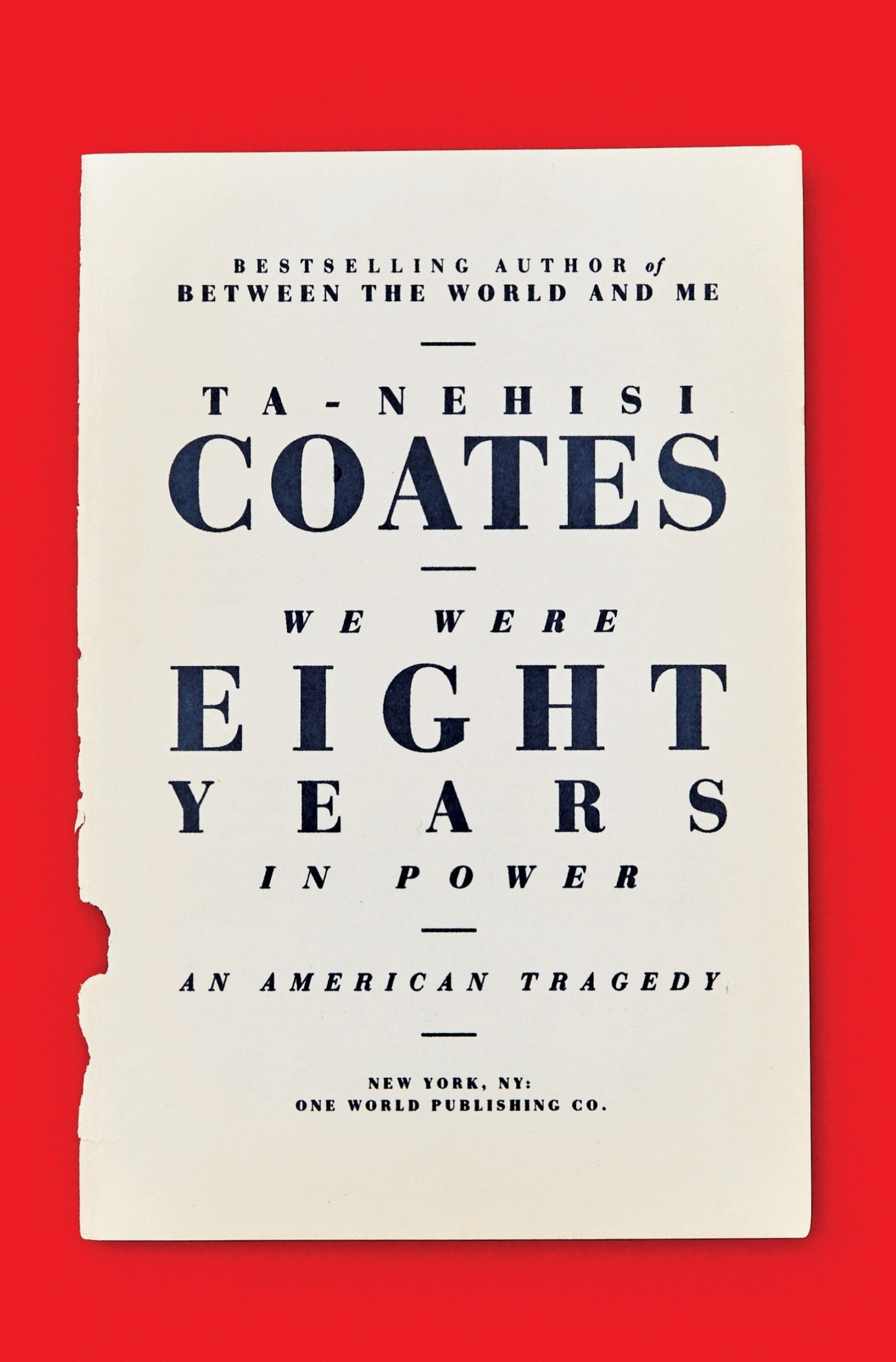
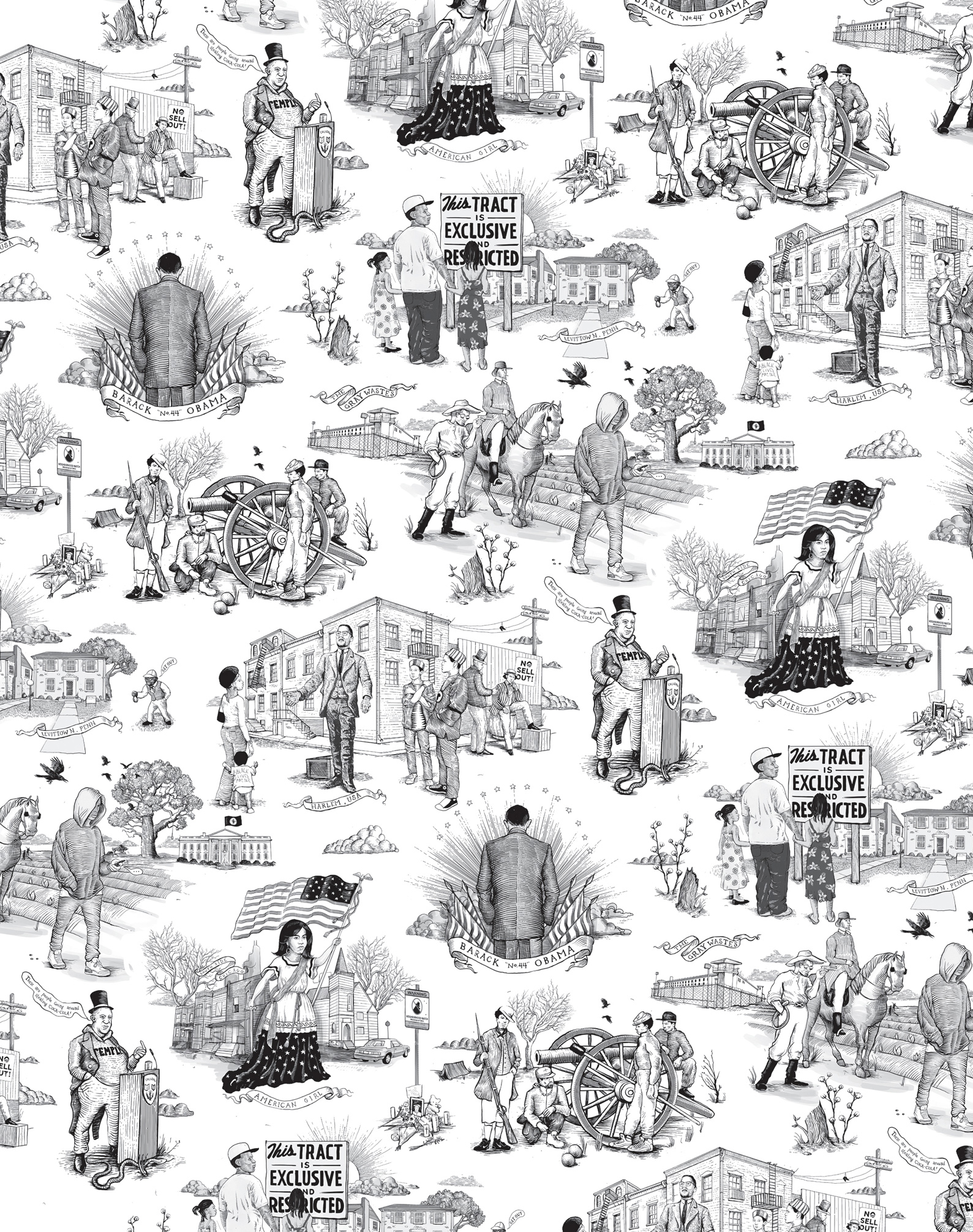
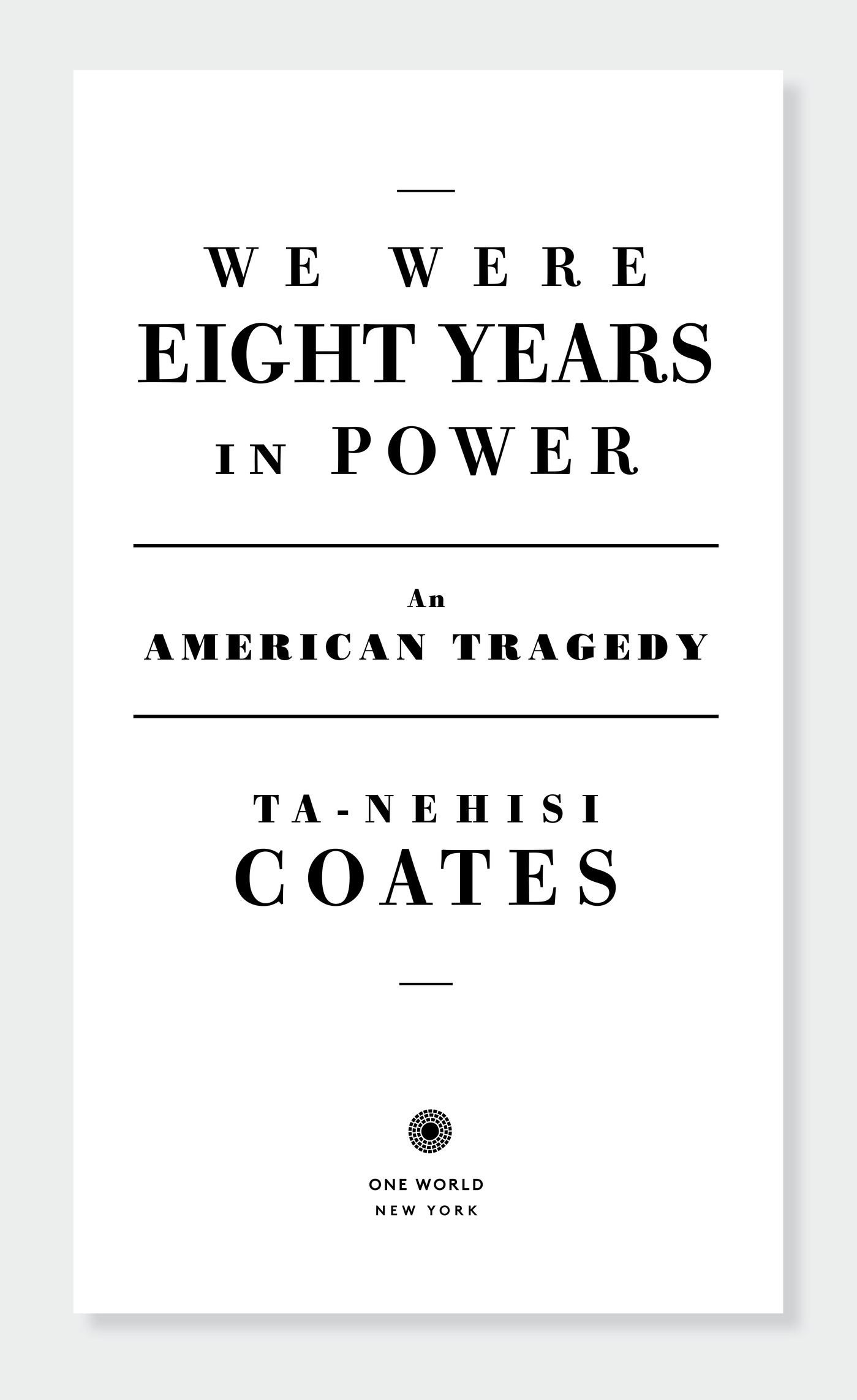
Copyright 2017 by BCP Literary, Inc.
All rights reserved.
Published in the United States by One World, an imprint of Random House, a division of Penguin Random House LLC, New York.
O NE W ORLD is a registered trademark and its colophon is a trademark of Penguin Random House LLC.
Illustration by Dan Funderburgh
Grateful acknowledgment is made to The Atlantic for permission to reprint the following articles by Ta-Nehisi Coates originally published in The Atlantic: This Is How We Lost to the White Man and American Girl, copyright 2009 by Ta-Nehisi Coates; The Legacy of Malcolm X, copyright 2011 by Ta-Nehisi Coates; Why Do So Few Blacks Study the Civil War? and Fear of a Black President, copyright 2012 by Ta-Nehisi Coates; The Case for Reparations, copyright 2014 by Ta-Nehisi Coates; The Black Family in the Age of Mass Incarceration, copyright 2015 by Ta-Nehisi Coates; My President Was Black, copyright 2016 by Ta-Nehisi Coates. Reprinted by permission of The Atlantic.
L IBRARY OF C ONGRESS C ATALOGING-IN -P UBLICATION D ATA
Names: Coates, Ta-Nehisi, author.
Title: We were eight years in power : an American tragedy / by Ta-Nehisi Coates.
Description: First edition. | New York : One World, 2017.
Identifiers: LCCN 2017039343 | ISBN 9780399590566 | ISBN 9780399590580 (ebook)
Subjects: LCSH: United StatesRace relations21st century. | African AmericansSocial conditions21st century. | United StatesPolitics and government20092017. | Coates, Ta-NehisiPolitical and social views. | Obama, BarackInfluence.
Classification: LCC E185.615 .C6336 2017 | DDC 305.896/0730905dc23
LC record available at lccn.loc.gov/2017039343
Hardback ISBN9780399590566
International edition ISBN9780525510284
Ebook ISBN9780399590580
randomhousebooks.com
Book design by Barbara M.Bachman, adapted for ebook
Cover design: Ben Grandgenett
Art direction: Greg Mollica
Cover photograph: Matthew Zach
v4.1_r3
ep
We dont just shine, we illuminate the whole show.
JAY - Z

I n 1895, two decades after his state moved from the egalitarian innovations of Reconstruction to an oppressive Redemption, South Carolina congressman Thomas Miller appealed to the states constitutional convention:
We were eight years in power. We had built schoolhouses, established charitable institutions, built and maintained the penitentiary system, provided for the education of the deaf and dumb, rebuilt the ferries. In short, we had reconstructed the State and placed it upon the road to prosperity.
By the 1890s, Reconstruction had been painted as a fundamentally corrupt era of Negro Rule. It was said that South Carolina stood under threat of being Africanized and dragged into barbarism and iniquity. Miller hoped that by highlighting black achievement in governance and marshaling a credible defense of black morality, he might convince the doubtlessly fair-minded people of South Carolina to preserve the citizenship rights of African Americans. His plea went unheeded. The 1895 constitution added both literacy tests and property requirements as qualifications for enfranchisement. When those measures proved insufficient to enforcing white supremacy, black citizens were shot, tortured, beaten, and maimed.
Assessing Millers rebuttal and the 1895 convention, W.E.B. Du Bois made a sobering observation. From Du Boiss perspective, the 1895 constitutional convention was not an exercise in moral reform, or an effort to purge the state of corruption. This was simply cover for the conventions true aimthe restoration of a despotic white supremacy. The problem was not that South Carolinas Reconstruction-era government had been consumed by unprecedented graft. Indeed, it was the exact opposite. The very successes Miller highlighted, the actual record of Reconstruction in South Carolina, undermined white supremacy. To redeem white supremacy, that record was twisted, mocked, and caricatured into something that better resembled the prejudices of white South Carolina. If there was one thing that South Carolina feared more than bad Negro government, wrote Du Bois, it was good Negro government.
The fear had precedent. Toward the end of the Civil War, having witnessed the effectiveness of the Unions colored troops, a flailing Confederacy began considering an attempt to recruit blacks into its army. But in the nineteenth century, the idea of the soldier was heavily entwined with the notion of masculinity and citizenship. How could an army constituted to defend slavery, with all of its assumptions about black inferiority, turn around and declare that blacks were worthy of being invited into Confederate ranks? As it happened, they could not. The day you make a soldier of them is the beginning of the end of our revolution, observed Georgia politician Howell Cobb. And if slaves seem good soldiers, then our whole theory of slavery is wrong. There could be no win for white supremacy here. If blacks proved to be the cowards that the whole theory of slavery painted them as, the battle would literally be lost. But much worse, should they fight effectivelyand prove themselves capable of good Negro governmentthen the larger war could never be won.
The central thread of this book is eight articles written during the eight years of the first black presidencya period of Good Negro Government. Obama was elected amid widespread panic and, in his eight years, emerged as a caretaker and measured architect. He established the framework of a national healthcare system from a conservative model. He prevented an economic collapse and neglected to prosecute those largely responsible for that collapse. He ended state-sanctioned torture but continued the generational war in the Middle East. His familythe charming and beautiful wife, the lovely daughters, the dogsseemed pulled from the Brooks Brothers catalogue. He was not a revolutionary. He steered clear of major scandal, corruption, and bribery. He was deliberate to a fault, saw himself as the keeper of his countrys sacred legacy, and if he was bothered by his countrys sins, he ultimately believed it to be a force for good in the world. In short, Obama, his family, and his administration were a walking advertisement for the ease with which black people could be fully integrated into the unthreatening mainstream of American culture, politics, and myth.
And that was always the problem.
One strain of African American thought holds that it is a violent black recklessnessthe black gangster, the black rioterthat strikes the ultimate terror in white America. Perhaps it does, in the most individual sense. But in the collective sense, what this country really fears is black respectability, Good Negro Government. It applauds, even celebrates, Good Negro Government in the unthreatening abstractThe Cosby Show, for instance. But when it becomes clear that Good Negro Government might, in any way, empower actual Negroes over actual whites, then the fear sets in, the affirmative-action charges begin, and birtherism emerges. And this is because, at its core, those American myths have never been colorless. They cannot be extricated from the whole theory of slavery, which holds that an entire class of people carry peonage in their blood. That peon class provided the foundation on which all those myths and conceptions were built. And as much as we can theoretically imagine a seamless black integration into the American myth, the white part of this country remembers the myth as it was conceived.
Font size:
Interval:
Bookmark:
Similar books «We Were Eight Years in Power»
Look at similar books to We Were Eight Years in Power. We have selected literature similar in name and meaning in the hope of providing readers with more options to find new, interesting, not yet read works.
Discussion, reviews of the book We Were Eight Years in Power and just readers' own opinions. Leave your comments, write what you think about the work, its meaning or the main characters. Specify what exactly you liked and what you didn't like, and why you think so.

